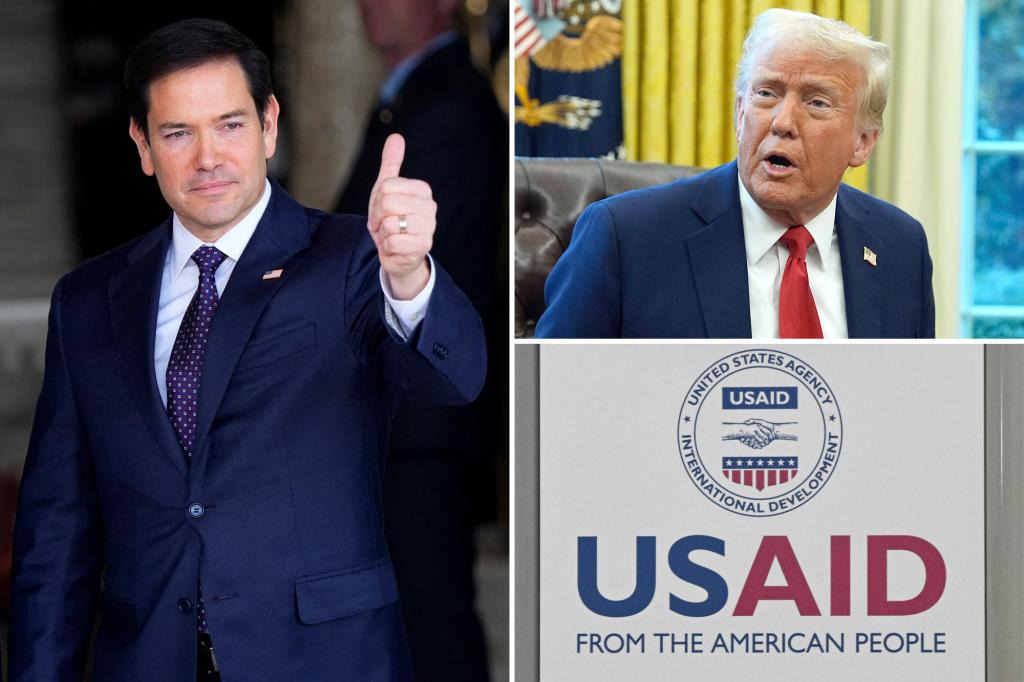The US Agency for International Development (USAID) finds itself in turbulent waters amidst a dramatic restructuring spearheaded by Elon Musk’s Department of Government Efficiency (DOGE) and overseen by acting administrator, Secretary of State Marco Rubio. Rubio, while acknowledging the agency’s ongoing functions, has expressed deep-seated concerns about USAID’s responsiveness and effectiveness, echoing long-standing criticisms from his time in Congress. He has delegated oversight responsibilities, indicating a commitment to a comprehensive review of the agency’s practices. The heart of the controversy lies in a fundamental disagreement about the agency’s core mission and the allocation of its substantial budget, exceeding $40 billion annually.
The intervention by DOGE, characterized by Musk as a necessary cleansing of a deeply flawed organization, has further complicated the situation. Musk has publicly denounced USAID, labeling it a haven for “radical left Marxists” and its operations as irreparably corrupt. This aggressive stance, coupled with DOGE’s actions at USAID headquarters – including taking down the website and instructing employees to stay home – underscores a stark contrast in perspectives on the agency’s future. The reported confrontation between DOGE engineers and USAID security officials, leading to the placement of two officials on leave, highlights the tension surrounding this intervention. The sudden resignation of USAID Chief of Staff Matt Hopson and the restricted access to computer systems for hundreds of employees add to the growing sense of upheaval within the agency.
Rubio, while acknowledging the need for some USAID programs to continue, has expressed significant concerns about the agency’s spending practices. He emphasizes the importance of accountability for taxpayer dollars, highlighting the need for transparency regarding program objectives, recipients, contractors, and funding mechanisms. This focus on fiscal responsibility aligns with broader critiques of USAID’s operational efficiency and effectiveness. The controversy surrounding USAID’s funding of research labs in Wuhan, China, adds fuel to the fire. The revelation of grants totaling $854,384 allocated towards “gain-of-function” research on bat coronaviruses, particularly in light of the COVID-19 pandemic’s origins, has sparked significant questions about the agency’s judgment and oversight procedures.
The clash between established governmental processes and Musk’s disruptive approach is a defining feature of this unfolding drama. While President Trump has voiced his support for Musk’s efforts to reform USAID, he has also emphasized that any federal actions undertaken by Musk’s non-governmental group require White House approval. This caveat underscores the delicate balance between leveraging private sector expertise and adhering to established governmental protocols. The situation highlights the inherent complexities and potential conflicts that arise when private entities engage in activities traditionally within the purview of government agencies.
The controversy surrounding USAID’s future exposes a deeper debate about the role and effectiveness of foreign aid. Critics, including Musk and Trump, argue that the agency has become entangled in politically motivated initiatives, straying from its core mandate of humanitarian assistance and development. The allocation of funds to potentially controversial research, along with allegations of supporting left-leaning causes abroad, has fueled accusations of mismanagement and misaligned priorities. This debate raises fundamental questions about the optimal approach to foreign aid, the appropriate level of government oversight, and the potential for private sector involvement in delivering aid effectively.
The future of USAID remains uncertain. The forceful actions taken by DOGE, coupled with Rubio’s critical review and Trump’s cautious endorsement of reform, signal a potential period of significant transformation for the agency. The outcome will likely depend on the findings of audits and investigations, the level of cooperation between DOGE and government officials, and ultimately, the political will to implement substantial changes. The unfolding situation underscores the challenges inherent in balancing the need for effective foreign aid with concerns about accountability, transparency, and alignment with national interests. The involvement of a prominent figure like Elon Musk adds a unique dimension to this debate, raising questions about the appropriate role of private individuals and organizations in shaping government policy and operations.

